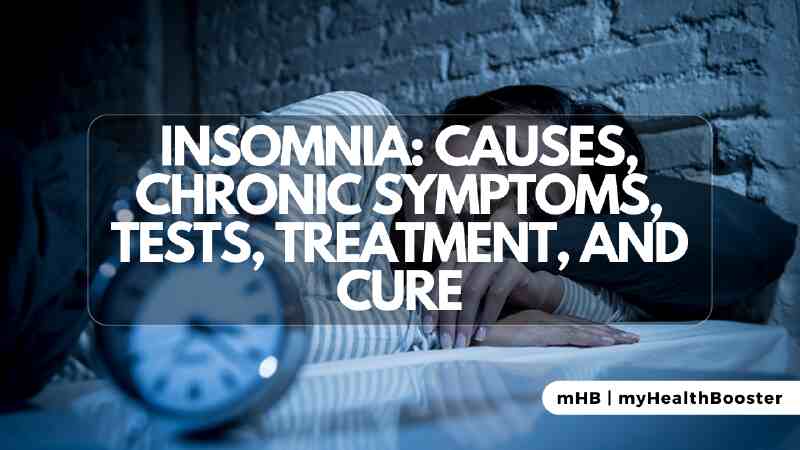Insomnia, a prevalent sleep disorder, challenges individuals in initiating or maintaining sleep, leading to impaired daytime functioning. This article explores the various aspects of insomnia, shedding light on its causes, symptoms, diagnostic methods, and potential treatments.
What is Insomnia?
Insomnia encompasses difficulty falling or staying asleep, despite ample opportunity and time for rest. It can be both a cause and a result of insufficient or poor-quality sleep. Studies indicate that approximately 90% of the general population experiences acute insomnia at least once, with about 10% enduring chronic insomnia.
Types of Insomnia
Insomnia’s duration classifies it into three types:
- Transient Insomnia: Lasts a week or less, often linked to situational factors.
- Short-term Insomnia: Persists for more than a week but resolves in less than three weeks.
- Long-term or Chronic Insomnia: Lasts beyond three weeks, indicating an ongoing issue.
Additionally, insomnia can be categorized based on underlying causes, including sleep hygiene, existing health problems, sleep disorders, stress factors, and more.
Causes of Insomnia
Understanding the root causes of insomnia is crucial for effective management. The International Classification of Sleep Disorders identifies various insomnia categories:
- Adjustment Insomnia: Short-term insomnia triggered by stress or environmental changes.
- Psychophysiologic Insomnia: Prolonged stress leading to chronic insomnia.
- Paradoxical Insomnia: Little or no sleep due to constant awareness during the night.
- Insomnia Due to Medical Conditions: Linked to health issues like COPD, arthritis, or mental disorders.
- Insomnia Due to Substance Abuse: Resulting from alcohol, stimulant, or caffeine abuse.
- Inadequate Sleep Hygiene: Associated with poor sleep habits and environmental factors.
- Idiopathic Insomnia: Long-term insomnia without a clear cause, often starting in childhood.
Stress and Lifestyle Factors
Common situational and stress factors contributing to insomnia include jet lag, physical discomfort, shift work, life changes, substance use, and certain medications. Addressing these factors is essential for managing and preventing insomnia.
Symptoms of Insomnia
Daytime impairment is the hallmark symptom of insomnia. Other prevalent signs include fatigue, sleepiness, mood changes, poor concentration, anxiety, and increased errors.
When to Seek Medical Advice
While acute insomnia often resolves spontaneously, persistent or medically related insomnia requires professional evaluation. Doctors may assess patients through physical examinations, sleep logs, and specific diagnostic tests.
Diagnostic Tests
Medical professionals employ various diagnostic tools, such as polysomnography and actigraphy, to evaluate sleep patterns and identify underlying issues.
Treatment Approaches
Insomnia treatment depends on its cause. Non-medical or behavioral approaches, including sleep hygiene, stimulus control, relaxation techniques, and sleep restriction, complement medical therapy. Medications like benzodiazepines, non-benzodiazepine sedatives, and certain antidepressants may be prescribed based on the severity and underlying conditions.
Natural and Home Remedies
In addition to medical interventions, non-medical strategies play a vital role. Practices like maintaining sleep hygiene, practicing stimulus control, and incorporating relaxation techniques contribute to a comprehensive approach to managing insomnia.
Conclusion
Understanding insomnia’s multifaceted nature is crucial for adopting effective prevention and treatment strategies. By addressing its various causes, implementing healthy sleep practices, and seeking professional guidance, individuals can pave the way for restful nights and improved daytime functioning.
